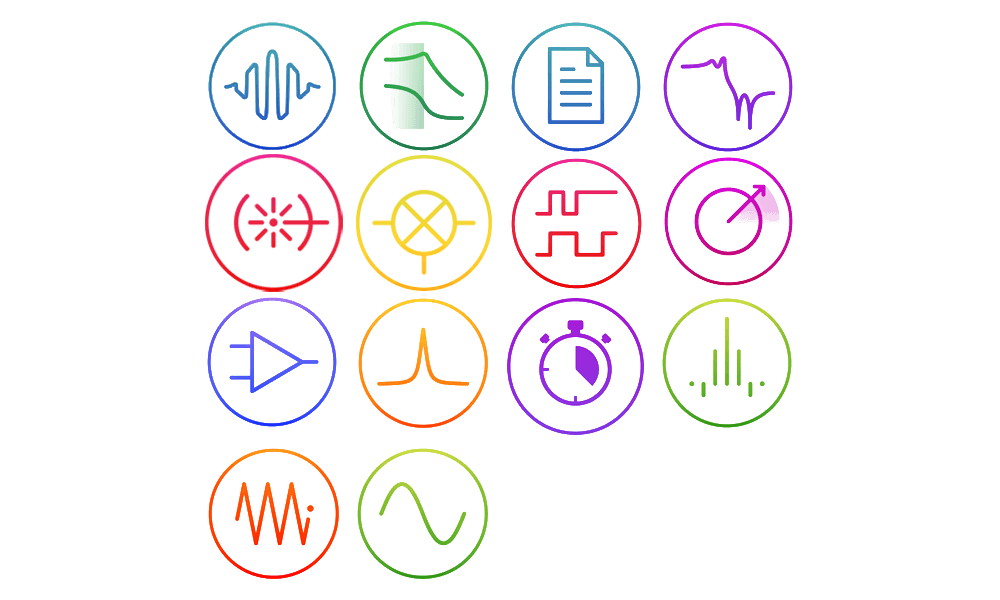Moku:Go
Multiple instruments in a single platform.
Tackle everyday lab tasks with this versatile, easy-to-use solution for quick experiments and testing with 30 MHz bandwidth.


Key benefits of Moku:Go
Goes beyond the essentials in one device
With 14+ instruments and integrated power supplies, you can achieve more, faster.
Enables end-to-end product test from anywhere
From the lab to the classroom, take your bench with you wherever you go.
Runs custom code for real-time development
Work smarter with custom FPGA programming and API support.
Delivers the best value in its class
Harness advanced capabilities unavailable from other devices in its class.


A better way to simplify your bench
Moku:Go combines a compact hardware design with intuitive software to provide test essentials and tools for complex applications, all in a single device. From audio and power electronics to analogue and digital design, use Moku:Go to explore and test concepts with flexibility and ease.
With access to 14+ instruments, from an Oscilloscope to a PID Controller, Moku:Go has the right equipment for your application. The easy-to-use GUI helps simplify design, debug and data collection. Tackle more advanced applications with the ability to implement custom FPGA code, API support, and specialised instruments like the Lock-in Amplifier and Laser Lock Box, previously unavailable in this device class.
Multiple instruments in a single platform
Consolidate old racks and stacks into one piece of portable equipment that provides the instruments you need to optimize design and test. As the software evolves, you get instant access to valuable new features sent directly to your Moku device — with no new hardware required.
Explore the instruments available for Moku:Go


Key specs & capabilities


2 analogue inputs
Up to 30 MHz, 125 MSa/s


2 analogue outputs
Up to 20 MHz, 125 MSa/s


Digital I/O
16 channels, 125 MSa/s per channel


Power Supply
Up to 4 channels (model dependent)


Lightweight design
1.7 lb / 750 g
Design, test, validate, repeat
With Moku:Go, you don’t need to compromise between number of benchtop instruments and number of capabilities. Moku:Go provides the right tool for the job at a fraction of the cost.
If you’re a validation or test engineer, you can use Moku:Go for troubleshooting new designs at your bench, or take advantage of its portability to easily gather critical data in remote or non-traditional settings.




Modern tools to elevate engineering education
To prepare undergraduate students for the next-generation workforce, engineering education programs should be equipped with the latest tools and technology. Designed with an intuitive user interface, Moku:Go provides an enjoyable learning experience while reinforcing fundamental concepts and making advanced topics more accessible, sooner.
Customisation without the overhead
Enable new possibilities for research, teaching, and more with the user-programmable FPGA that runs real-time custom signal processing. Moku Cloud Compile allows you to code, compile and deploy FPGA code right from your browser, vastly simplifying your workflow. Use Multi-Instrument Mode to deploy simultaneously with another instrument of your choice.


Get started with Moku:Go
For more information about Liquid Instruments test equipment, start a technical conversation with a member of our team.
